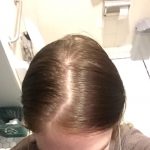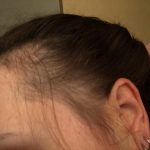How Effective Are JAK Inhibitors For Hair Growth In Alopecia Areata?

Alopecia areata is a common autoimmune disorder that affects the hair follicles, leading to hair loss. It is characterized by the sudden appearance of one or more small, round patches of hair loss on the scalp or other parts of the body where hair usually grows. The condition occurs when the body’s immune system mistakenly attacks its own hair follicles, causing them to shrink and enter a resting phase, which eventually leads to hair shedding. While the exact cause of alopecia areata is not fully understood, genetic predisposition and environmental factors are believed to play a role in its development.
Alopecia areata can affect people of all ages, genders, and ethnicities. The hair loss it causes can vary in severity, ranging from small, isolated patches to extensive loss of scalp and body hair. In some cases, it can lead to complete baldness on the scalp (alopecia totalis) or even the loss of all body hair (alopecia universalis). The condition is generally considered to be non-scarring, meaning that the hair follicles are not permanently damaged, and hair regrowth is possible.
While its exact cause remains elusive, recent breakthroughs have shed light on the role of Janus kinase (JAK) inhibitors in treating this condition. JAK inhibitors, initially developed to target inflammatory pathways in conditions like rheumatoid arthritis, have emerged as a promising treatment avenue for promoting hair regrowth in alopecia areata patients. In this article, we explore how JAK inhibitors work, their efficacy, potential side effects, and the evolving landscape of hair loss treatment.
What are Janus kinase (JAK) inhibitors?
Janus kinases (JAKs) are a family of enzymes that play a crucial role in transmitting signals from cytokines and growth factors, which are essential for cellular communication and immune responses. These enzymes are pivotal in various cellular processes, including inflammation and immune regulation. Janus kinase inhibitors, often referred to as JAK inhibitors, are a class of medications designed to block the activity of these enzymes, thereby modulating immune responses and managing inflammatory conditions. The application of JAK inhibitors has expanded beyond their original focus on autoimmune disorders like rheumatoid arthritis, now encompassing conditions like alopecia areata.
Examples of JAK Inhibitors
1. Tofacitinib (Xeljanz): Originally developed for the treatment of rheumatoid arthritis, tofacitinib is one of the pioneering JAK inhibitors. It operates by inhibiting JAK1 and JAK3 enzymes, which are involved in signaling pathways associated with inflammation and immune responses. Tofacitinib’s potential in treating alopecia areata was discovered serendipitously during clinical trials for rheumatoid arthritis when patients with both conditions experienced hair regrowth. Subsequent studies and trials demonstrated its efficacy in promoting hair regrowth in alopecia areata patients, leading to its investigation as a potential treatment for this hair loss condition.
2. Ruxolitinib (Jakafi): Ruxolitinib, originally developed to treat myelofibrosis, a bone marrow disorder, is another notable JAK inhibitor. It primarily targets JAK1 and JAK2 enzymes, affecting pathways involved in inflammation and cell growth. Just like tofacitinib, ruxolitinib’s potential to stimulate hair regrowth in alopecia areata patients was discovered unexpectedly. Clinical trials have shown promising results, indicating that ruxolitinib may be an effective treatment option for those with moderate to severe alopecia areata.
3. Baricitinib (Olumiant): Baricitinib, initially developed to treat rheumatoid arthritis, inhibits JAK1 and JAK2 enzymes. Its potential application in alopecia areata treatment arises from its ability to disrupt inflammatory signaling pathways. While research on baricitinib’s effectiveness in promoting hair regrowth is ongoing, early studies have shown encouraging results, fueling optimism about its potential as a therapy for alopecia areata.
How Effective Are JAK Inhibitors For Hair Growth In Alopecia Areata?
JAK inhibitors have illuminated a new pathway for managing alopecia areata, offering hope to individuals experiencing hair loss due to autoimmune conditions. According to a recent systematic review and meta-analysis, Janus kinase (JAK) inhibitors have demonstrated a notable ability to effectively stimulate hair growth in comparison to placebo among patients with alopecia areata. The study found that oral formulations of JAK inhibitors were more efficacious than topical variations. The analysis, which encompassed seven trials involving nearly 2000 patients, revealed that individuals administered JAK inhibitors had over five times the odds of achieving a 50% improvement in their condition when compared to those who received a placebo treatment. The study’s lead author, Ming Liu, PhD, and colleagues from McMaster University in Hamilton, Ontario, Canada, noted that while the safety and tolerability of JAK inhibitors were deemed acceptable, further extensive randomized controlled trials are necessary to provide a deeper evaluation of the efficacy and safety aspects of these treatments for alopecia areata.
The use of JAK inhibitors in alopecia areata underscores the intricate interplay between immune regulation and hair follicle biology, unveiling a realm of possibilities for innovative treatments that address both the physical and emotional impact of hair loss.
Administration and Considerations
JAK inhibitors are typically available in oral form and must be prescribed by a medical professional. The treatment regimen involves careful monitoring and adjustment of dosage to manage potential side effects and maximize benefits. Topical JAK inhibitors are also being explored as an option, offering a more targeted approach to treatment.
Potential Side Effects
As with any medication, JAK inhibitors come with potential side effects. Common adverse effects may include headaches, gastrointestinal discomfort, and a slight increase in the risk of infections. Long-term safety and potential side effects are areas of ongoing research, and healthcare providers closely monitor patients during treatment.
The Future of Alopecia Areata Treatment
The emergence of JAK inhibitors as a viable treatment option represents a significant advancement in the field of hair loss therapy. As researchers continue to delve into the mechanisms behind alopecia areata and refine JAK inhibitor formulations with support from organizations like the National Alopecia Areata Foundation, the hope is that these medications will offer long-lasting solutions with fewer side effects. Combination therapies, utilizing JAK inhibitors alongside other treatments, are also being explored to enhance the overall efficacy of hair regrowth in alopecia areata patients.
Conclusion
Janus kinase (JAK) inhibitors have ushered in a new era of hope for individuals struggling with hair loss due to alopecia areata. These inhibitors work by targeting the inflammatory pathways underlying the condition, promoting hair regrowth and potentially transforming the lives of those affected. While ongoing research is necessary to better understand the long-term effects and optimize treatment strategies, the progress made thus far holds promise for a brighter future for those seeking effective solutions to alopecia areata. The FDA recently approved a new drug for fighting severe hair loss as part of measures to increase treatment options. Always consult a healthcare professional before embarking on any treatment journey, and stay informed about the latest advancements in the field.





